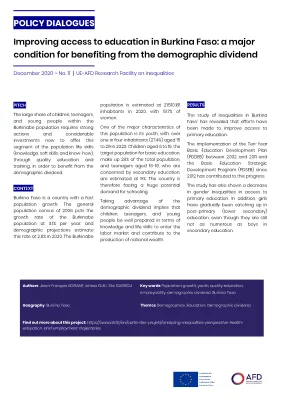Search results
Exchange rate and balance of payment risks in the global development finance architecture
The authors analyze the exchange rate and balance of payment crisis risks when MDBs lend, in hard currency, to NDBs, for NDBs to onlend to investment projects. Investment projects maybe “export-enhanc...
Publication
Published on
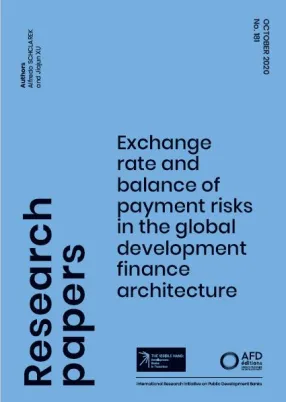
Checks and balance, Political Leadership, and Bureaucratic Autonomy: Evidence from National Development Banks
A long standing view in the political economy of bureaucracy holds that the quality of political governance is the foundation of high quality development agencies. However, the existing literature doe...
Publication
Published on
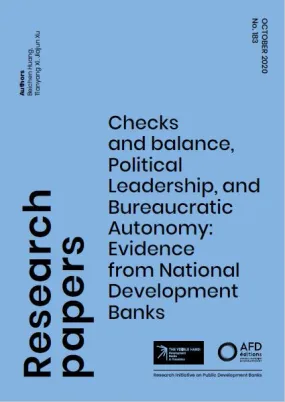
Carbon Policies and Climate Financial Regulation
We analyze optimal climate financial regulation to address the question when capital requirements should be differentiated in order to encourage climate related investments. We distinguish between two...
Publication
Published on
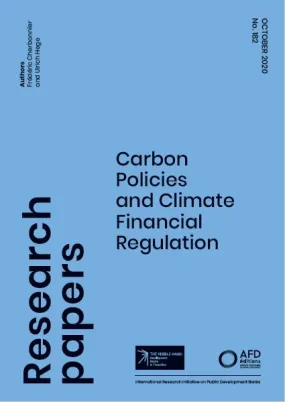
Scaling up public development banks’ transformative alignment with the 2030 Agenda for Sustainable Development
Before the Covid-19 crisis struck, numbers said that implementing the 2030 Agenda and its Sustainable Development Goals (SDGs) would cost between USD 50 trillion and USD 70 trillion, over a 10-year pe...
Publication
Published on
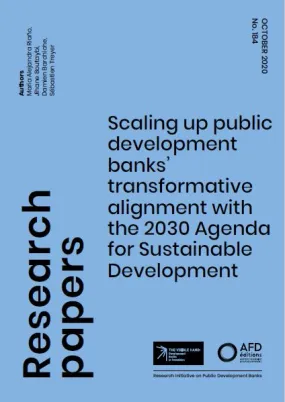
Piloting and Scaling Up Clean Energy Transitions: The Role of Development Finance Institutions
In this paper, the authors examine the role of development finance institutions (DFIs) in piloting clean energy transitions by conducting in-depth case studies with representative multilateral develop...
Publication
Published on
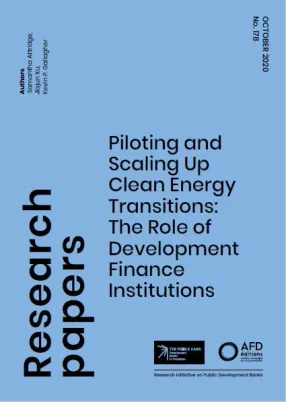
Counter-cyclical Responses: How Development Banks helped the Covid-19 Recovery, and Lessons for the Future
The objective of this paper is to shed light on the crucial and varied counter-cyclical roles played by development banks across the globe during the COVID-19 pandemic, and lessons learned for future...
Publication
Published on
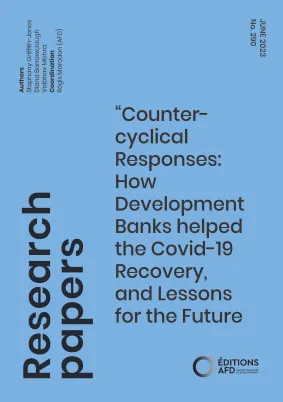
Can development banks step up to the challenge of sustainable development?
The great planetary challenges, be it the climate, loss of nature or human solidarity, call for concerted actions at all levels, on a scale commensurate with the problems. Yet, this transformative cha...
Publication
Published on
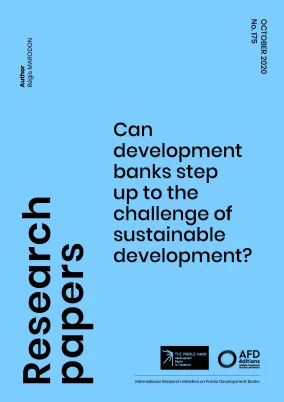
Mapping 500+ Development Banks
The Institute of New Structural Economics (INSE) at Peking University and the Agence française de développement (AFD) are collaborating to build the first comprehensive database on public development...
Publication
Published on
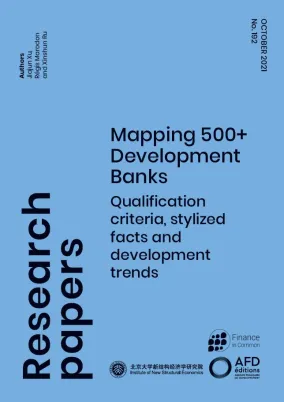
10 policy recommendations for decision makers on Public Development Banks
Major planetary concerns, including climate change, loss of nature and inequalities among human beings, call for very large scale concerted action at all levels. The challenge is to favor major struct...
Publication
Published on
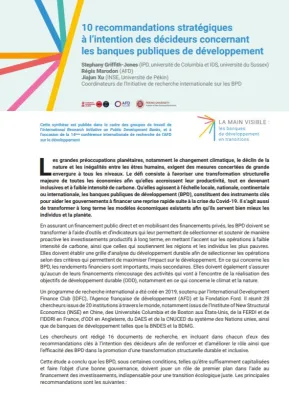
The Proof is in the Pudding. Revealing the SDGs with Artificial Intelligence
The use of frontier technologies in the field of sustainability is likely to accompany its visibility, and the quality of information available to decision makers. This paper explores the possibility...
Publication
Published on
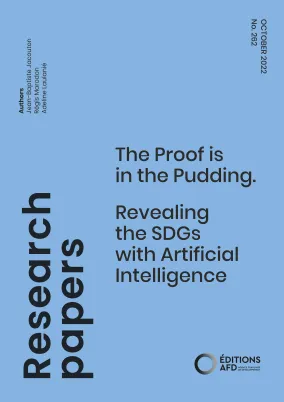
From Multi- to National- and Back Again: Realizing the SDG Potential of Public Development Banks
Public multilateral (MDBs) and national development banks (NDBs) are already working to advance the 2030 Sustainable Development Goals (SDGs). But can they do more to help deliver finance at the righ...
Publication
Published on
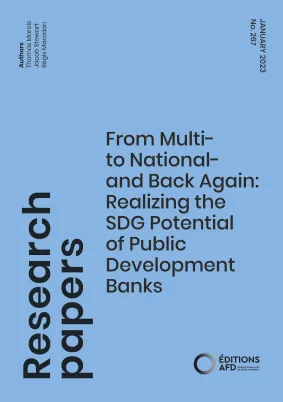
Realizing the Potential of National Development Banks to Boost Sustainable Development Financing with MDB Supp...
The world’s public development banks cannot avoid confronting the global environmental and climate finance crises. Nor should they. This research paper asks, ‘What do national development banks (NDBs)...
Publication
Published on
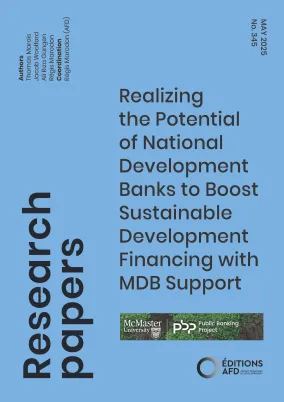
The allocation of resources of national development banks
Public financial institutions and National Development Banks (NDBs) in particular are well suited to fill financing gaps in un- or under- served markets. By virtue of their developmental mandate, and...
Publication
Published on
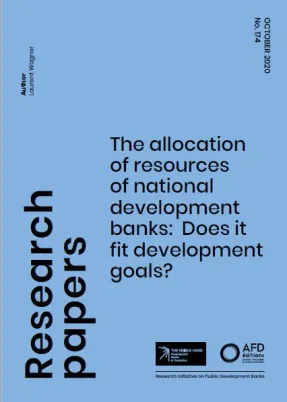
Financing without doing harm: for virtuous mechanisms to support african social science research
African research has scarcely begun to emerge at international level: Africa’s overall share in global publications stands at about 3.5%, and the social sciences represent a tiny fraction of this figu...
Publication
Published on
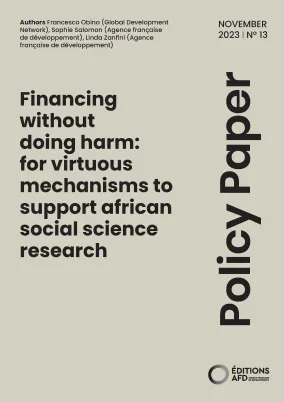
Climate change education effects on worldwide schoolchildren and their entourage
This systematic review explores the effects of climate change education (CCE) on the knowledge, attitude and behavior of schoolchildren and their surrounding communities worldwide.
Publication
Published on
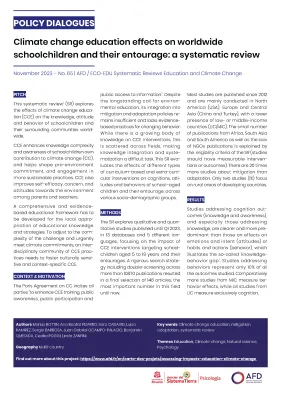
Climate Change Education from the Perspective of Social Norms
This study reviews the interplay between climate change education (CCE) and social norms among children, adolescents and young adults around the globe. The reviewed articles focus on scientific studie...
Publication
Published on

What characterizes the re-institutionalisation of research in Sahel countries?
After several years of de-institutionalization, African research has now entered a new consolidation phase in which international funding plays a central role. This paper has been produced through the...
Publication
Published on
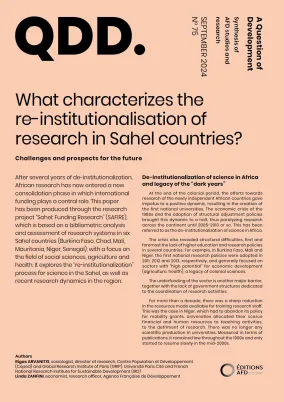
How can high-quality data on research systems improve decision-making and coordination in international develo...
Science remains a common language and high priority across countries. As such, science, technology, and innovation (STI) capabilities can contribute to sup port, develop, and deliver an ambitious inte...
Publication
Published on
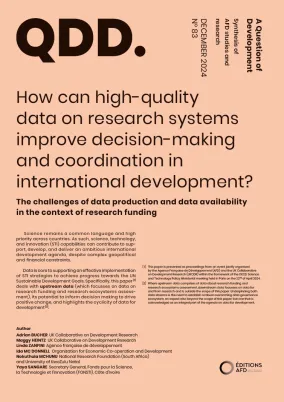
Meeting the equity challenge in Burkina Faso: regional policies to reduce economic inequalities
In their design and formulation, policy documents are generally limited to the macro level (entire country); they set out regional differences without explicitly highlighting the intraregional mechani...
Publication
Published on
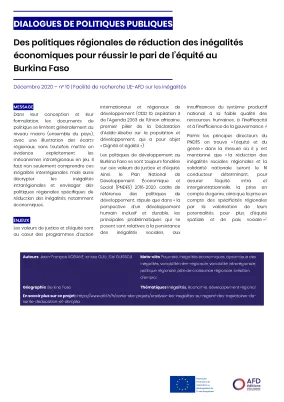
Improving access to education in Burkina Faso: a major condition for benefiting from the demographic dividend
The large share of children, teenagers, and young people within the Burkinabe population requires strong actions and considerable investments now to offer this segment of the population life skills (k...
Publication
Published on
